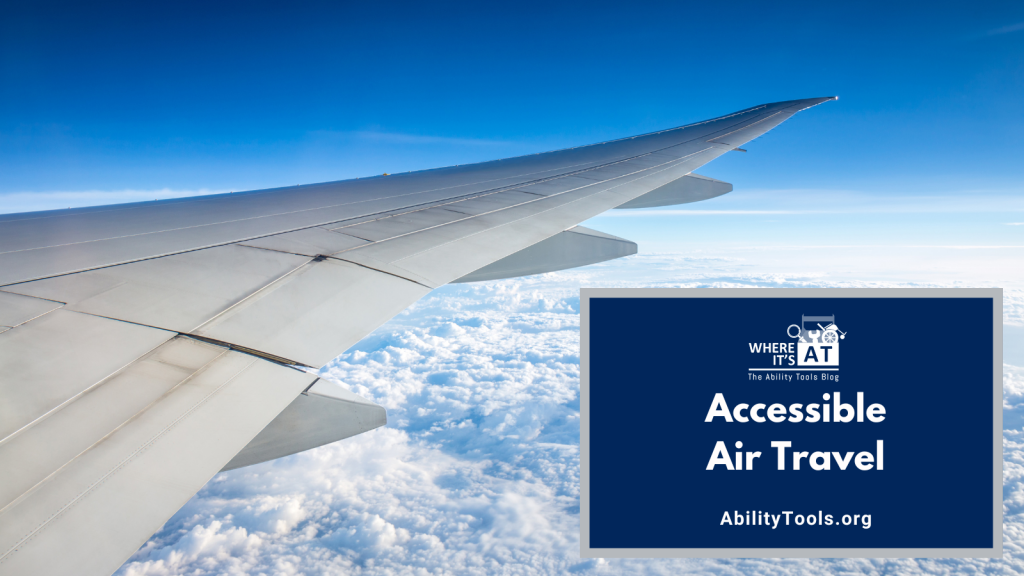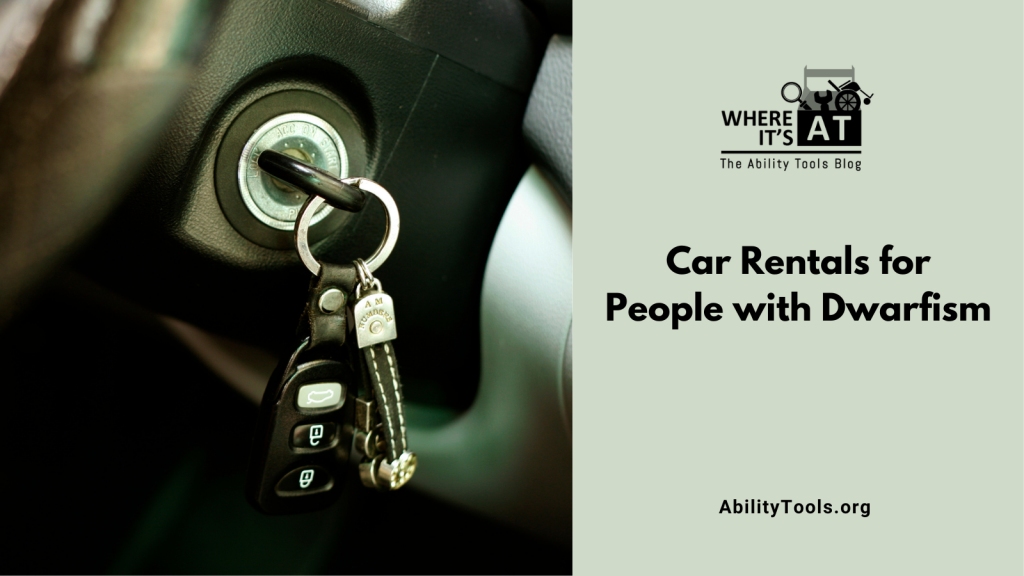
Air travel allows us to visit family and friends from all over the world, it is one of the quickest forms of transportation. If you are traveling during the busy holiday season, you’ll want to be informed of your rights and reasonable accommodations that can be requested to make air travel accessible for you and your family. The U.S. Department of Transportation (DOT) partnered with the Air Carrier Access Act (ACAA) Advisory Committee and together developed the Airline Passengers with Disabilities Bill of Rights. As outlined by the Department of Transportation the Airline Passengers with Disabilities Bill of Rights includes:
- The right to be treated with dignity and respect
- The right to receive information about aircraft services, capabilities, and limitations
- The right to receive information in an accessible format
- The right to accessible airport facilities
- The right to assistance at airports
- The right to assistance on the aircraft
- The right to travel with AT and/or a service animal
- The right to receive seating accommodations
- The right to accessible aircraft features
- The right to resolution of a disability related issue
It is the law for airlines and airports to accommodate the needs of travelers with disabilities, this includes but is not limited to:
- Wheelchair assistance;
- any seating accommodation assistance that meets passengers’ disability related needs;
- or assistance with Assistive Technology (AT) during travel.
Be informed, be prepared! Reasonable accommodations can be made at any time.
- To avoid delays, especially during the busy holiday season, call your airline ahead of time to request assistance so that airline staff can accommodate your request(s).
- In some instances, airlines can require a person to show proof of their condition if they need unique accommodation such as hooking up a respiratory machine, medical oxygen, transporting a wheelchair, etc. so, plan to have this available.
- If you have a connecting flight or are flying with different airlines, make sure to communicate with each individual airline so that they can confirm that your accessibility needs will be met during your travel.
AT that assists individuals perform everyday activities such as a wheelchair, Portable Oxygen Concentrators (POCs), Hearing Aids, or Continuous Positive Airway Pressure (CPAP) machines are allowed in the passenger cabin of the aircraft.
- If the AT device cannot be stored in the main cabin, then it can be stored in the cargo section of the aircraft at no additional cost.
- According to the U.S. DOT, Airlines are required to “check and return your assistive device in the same condition as it was received… [and] return your assistive device to you in a timely manner as close as possible to the door of the aircraft, unless you ask to pick it up in baggage claim.”
- To learn more about traveling with AT visit: Wheelchairs and Other Assistive Devices | US Department of Transportation
If you have a service animal, airlines are required to accept them on flights.
- DOT service animal forms must be filled prior to departure.
- Please note that Under the Air Carrier Access Act (ACAA) a service animal means a dog, “animal species other than dogs, emotional support animals, comfort animals, companionship animals, and service animals in training are not service animals”.
- While at the airport, if your service animal needs to relieve itself, airports have designated relief areas. If you are unsure where the relief area is, airport professionals can guide you to the neared relief area.
- Service animals are permitted on the main cabin in the seat space underneath you or in your lap if it is safe to do so.
- To learn more about traveling with service animals visit: Service Animals | US Department of Transportation
The Air Carrier Access Act makes it illegal to discriminate a person because of their disability. If you feel like you have been discriminated against your disability, please contact the U.S. DOT to file a complaint.
Once you land, you might need guidance on accessible car rentals. If so, check out our “Car Rentals for People with Dwarfism” blog to learn tips on how you can ensure the easiest time possible when requesting an accessible car rental, with most of Dan’s tips being able to help with renting any type of accessible vehicle.





